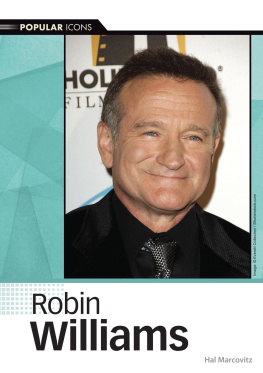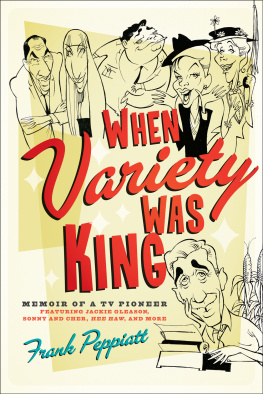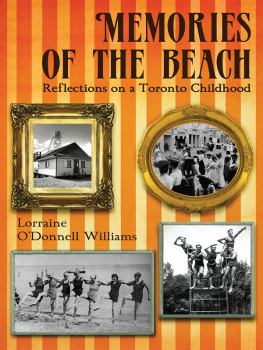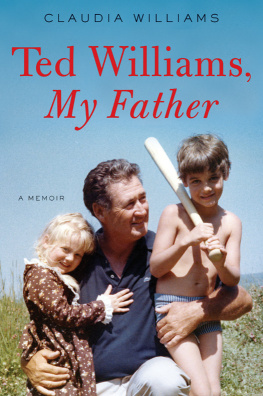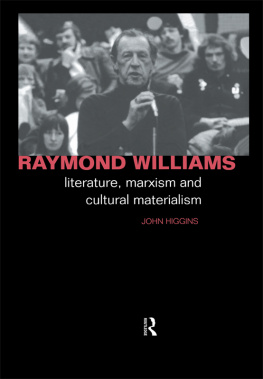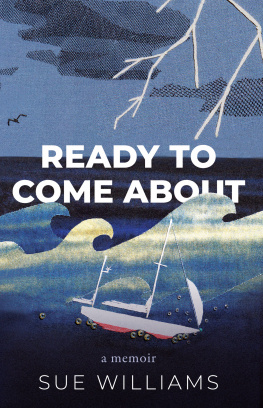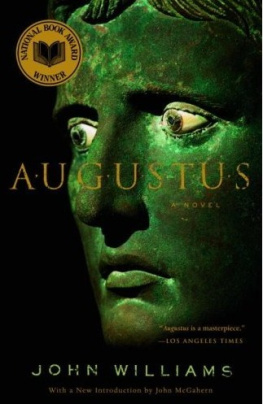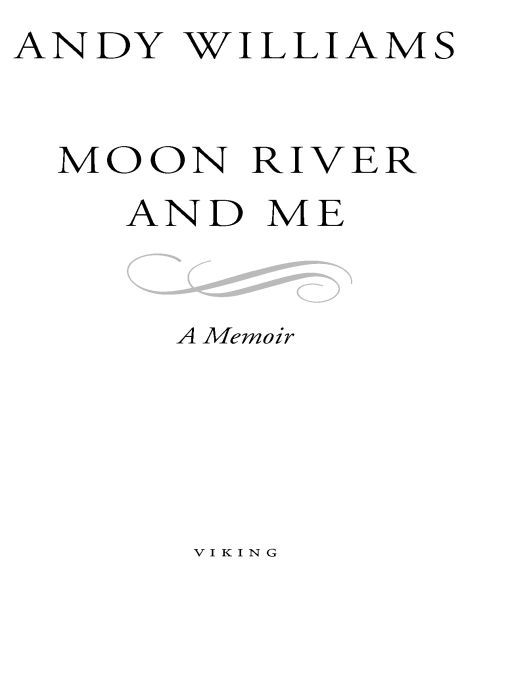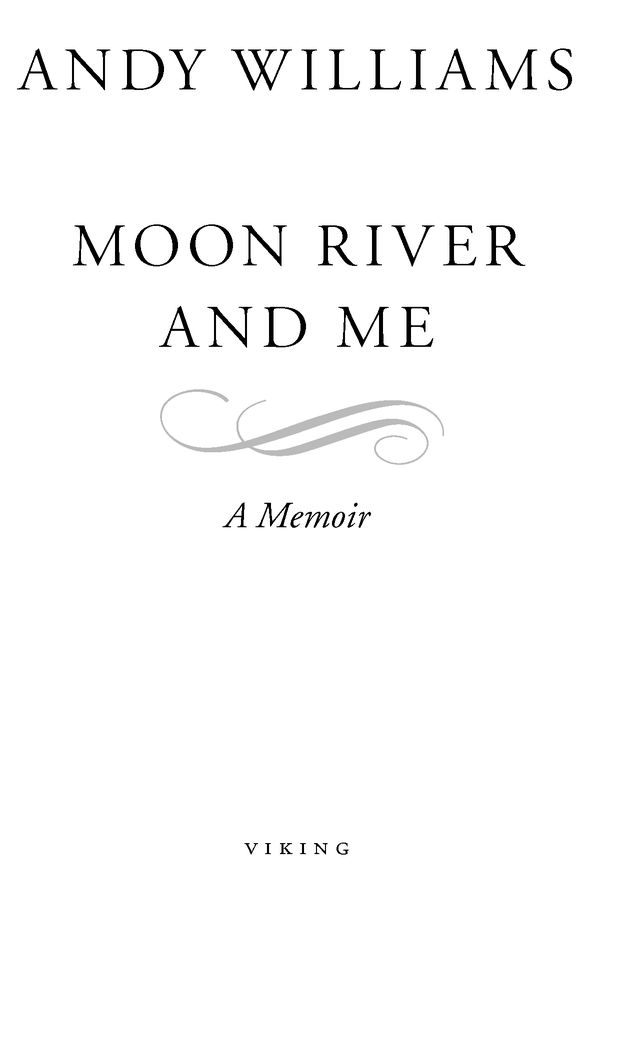Table of Contents
I dedicate this book to my father, Jay Emerson Williams,
who had the vision to see a future for me
as a singer, and the belief and the
relentless determination to make it happen.
It was one of those sun-baked August days when, even at ten in the morning, the heat was rising in shimmering waves from the fields of ripening wheat and corn, making the water tank on the nearby hill waver like a desert mirage. The faintest breath of wind stirred the oak tree outside the window of a timeworn clapboard house perched on a cinder hill above the railroad tracks.
A woman, plump, dark-haired, and with a gentle smile, was at work in the kitchen, the air full of the enticing smell of baking bread. She was humming a tune to herself as she rolled out more dough, but she paused every couple of minutes, cocking her ear to listen. Then she heard it: the lonely distant whistle of a freight train. She dropped the rolling pin she was holding and took off her apron. She dusted the flour from her hands as she hurried out the door and down the hill toward the little station. The train was in sight now, slowing as it approached and trailing a plume of smoke against the cornflower blue of the sky.
The woman walked along the platform and past the tiny station building, its wooden walls plastered with sun-faded notices. She stopped at the side of the track by a timber frame with a projecting iron hook. As the train approached, a railman swung a canvas mailbag on an iron bar out of the mail car behind the engine. He looked up and blew a kiss to the woman. He was a handsome craggy-faced man in his early thirties wearing a railmans peaked cap stained by sweat and dust.
A cloud of steam billowed around her as the engine rumbled past, and there was a thud as the mailbag caught on the hook and swung there as the train moved on. The woman reached up and unhooked it, struggling a little with the weight as she lowered it to the ground. She stepped back and waited. There was a moments pause, and then the sack began to wriggle and twist. An arm and then a tousled mop of hair appeared at the top of the sack, and a small boy fought his way out, emerging with the word Surprise!
Although we went through this ritual two or three times a week, my mom always managed a convincing look of surprise as I appeared. We both burst out laughing and turned to wave to my dad, still leaning out of the mail car and waving his hat as the train chugged on and rounded the bend. The plume of smoke and steam was still visible long after the train was lost to sight.
Hand in hand my mom and I walked back up the cinder hill to the house surrounded by the golden cornfields that stretched to the distant horizon under those vast midwestern skies.
I was born in that house on the hill on December 3, 1927, the youngest of four sons of Jay Emerson and Florence Williams. I was christened Howard Andrew Williams, but I was always known as Andy. I had three older brothers, Bob, Don, and Dick, and a sister, Janey, born the year after me. When I was six, my mom also gave birth to another child, Buddy.
My older brothers were contrasting characters. Bob was one of lifes eternal pessimists, forever expecting the worst, and even when it didnt happen, he would soon convince himself that calamity had only been postponed, not averted. Don, the next oldest, was the polar opposite, a permanently sunny, optimistic character. No amount of obstacles or setbacks could wipe the smile from his face for long. Dick was the shy and sensitive one, happiest when off in a corner on his own, scribbling in a notebook or trying to compose a tune on our old and battered upright piano. I was shy, too, but hid it behind a veneer of cheek and self-confidence that only those who knew me really well could see through.
My moms father, Andy Finley, also lived with us; I was named after him. In his working days he had driven The Transfer, the horse-drawn bus that shuttled people between the Northwestern Railroad and the Illinois Central track a mile away on the other side of town. I remember him as a kindly figure with white hair and a thick white mustache. He died the morning after Buddy was born. As my mother said with a sigh, I guess he just figured we needed the room.
We lived in Wall Lake in Sac County, Iowa, fifty miles northwest of Des Moines. It was one of those one-stoplight, one-horse midwestern towns that a motorist would pass through in the blink of an eye and probably not even notice, but if you were looking for a place that epitomized small-town America, Wall Lake would be as good as any. It was a great place to grow up. Everybody in town knew everybody else, and it was like living in a big extended family.
Despite its name, Wall Lake didnt have a lake of its own, but Blackhawk Lake was only a couple of miles to the west. Our one landmark was the steel water tower dominating the town, painted white and emblazoned with the words WALL LAKE in case anyone needed reminding about where he was. It looked down on a cluster of tree-shaded clapboard houses lining a handful of dusty streets. There were no paved roads in the town, just dirt and gravel, and none of the streets even had a name; it was that small a town. The population then was just 749, and that probably included the occupants of the cemetery. Small towns have their own way of keeping the population about the same year after year; every time a baby is born, someone leaves town.
We lived on the south side of Wall Lake, up the dirt road that ducked beneath a tangle of overhead telegraph wires and then a dog-leg, left and right, before crossing the railroad tracks and climbing the hill. Across the road from our house was the hotelthe only one in town; it was built for railroad passengers in busier times and now struggled to surviveand next door to it were the caf and the barber shop. Wall Lake was so small that even though we lived on the outskirts, we were only half a block from the center of town. There was a standing joke that we were so desperate for entertainment, if word went around that someone was getting a shave or a haircut at the barbershop, wed all turn out to watch.
Very little disturbed the sleepy calm of Wall Lake. The one thing that could be guaranteed to galvanize everyone into action was when a tornado roared through. They could appear at any time of year, but most came in May and June, usually in the late afternoon when the combination of heat and humidity seemed to trigger them. There was little advance warning. Sometimes the siren at the timber yard would wail, but most often it was just a sudden shout of Twister! yelled from one house to another.
Mom would drop whatever she was doing and holler to us to come running. Once I caught a brief glimpse of a dirt black whirling column, like a charcoal smudge on paper, linking the earth and the bruised purple-gray of the sky, as it snaked through the cornfields toward us. Then Mom grabbed my arm, pulled me inside, and hustled us all down to the cellar. She paused on the top step to bolt the cellar door before following us down, as if this would somehow keep the tornado at bay. She didnt switch on the electric light down there, and we sat in near total darkness, broken only by the feeble daylight seeping through chinks in the wooden shutters that covered the coal chute.



